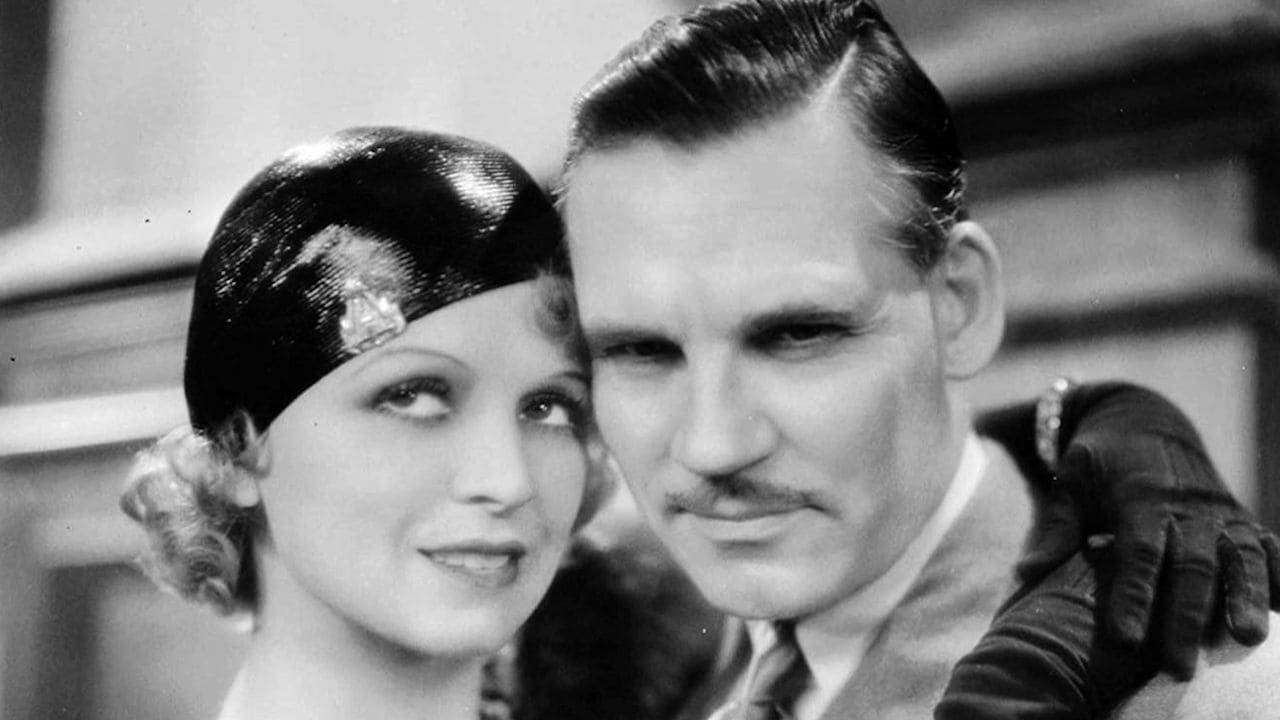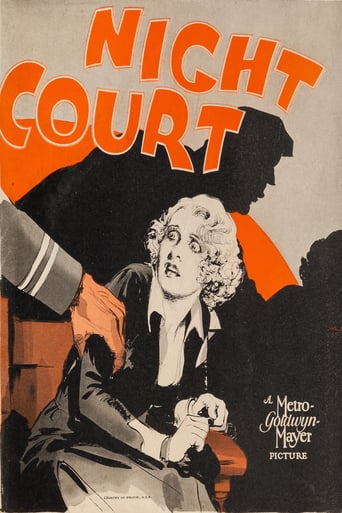



What makes it different from others?
Good start, but then it gets ruined
I think this is a new genre that they're all sort of working their way through it and haven't got all the kinks worked out yet but it's a genre that works for me.
View MoreClose shines in drama with strong language, adult themes.
View MoreNicely pre-Code but rather hack-written MGM programmer, wherein nice blue-collar cabby Phillips Holmes and nice wifey Anita Page come under the heavy thumb of Judge Walter Huston, who's incredibly corrupt. Huston, with a dashing mustache, relishes his bad-guy histrionics, and it's fun to see Metro toiling in the lower-class provenance of Warners. But the social consciousness is awkward: Huston's so all-bad and enemy Lewis Stone so all-good that these good actors can't do much to make their roles interesting, while the always-too-pretty Holmes is given to some theatrical, unconvincing soliloquizing. We're also asked to sympathize with and root for him when he kidnaps Huston, gags him, ties him to a chair, and beats him up. Virtue does triumph; we know because there's a shot of a newspaper headline saying something like "Vice Banished Forever from City, D.A. Says." There's also an annoyingly cute baby. W.S. Van Dyke directs at about half the pace Mervyn LeRoy or Howard Hawks would have employed at Warners, and Page is given to scene after scene of screaming and wailing. It's fun as a time capsule, but other studios, notably Warners, were handling material like this with much more finesse.
View MoreMade 73 years ago, "Night Court" is a very good, gritty precode about corruption in high places. In this case, it's a judge, played by Walter Huston.When a young woman, Mary (Anita Page) finds a bankbook left behind by a neighbor, she returns it, and finds herself sentenced to the work house for six months. The money belongs to Judge Moffett (Huston), who, to keep his activities quiet, hangs out in his girlfriend's apartment. The Judge believes that Mary looked at the bankbook and knows where he keeps his money. He sets her up and has her arrested as a prostitute. Her baby is put into care, leaving her poor cab-driver husband (Phillips Holmes) with nothing, and thanks to Moffett's girlfriend, he's even doubting his wife's innocence.However, he knows in his heart that Mary isn't capable of such a thing and sets out to clear her.The original was written by Mark Hellinger, a reporter, and producer of "Naked City" in 1948. The story is loosely based on a real-life character.Though some of the acting is melodramatic, as this was the style of the day, it's still compelling. Walter Huston is terrific, mean as dirt, and Holmes and Page are very sympathetic. Anita Page, about 22 here, worked until she died in 2008! Philips Holmes died in 1942 in a plane crash. For some reason, he reminds me of Tony Goldwyn.Three other cast members of note: Mary Carlisle (who as of this writing is still alive) as an honest judge's daughter, Lewis Stone as the honest judge, and Jean Hersholt as the building janitor.Very good and absorbing, though it's stylistically of the time.
View MoreNight Court was a slight, but interesting, entry in the pre-code genre of social commentary or expose´ films of the early 1930s I would say the same group that included the seminal `Public Enemy'. What made this film a joy to watch was not the revelatory peek of criminal machinations pervading the lower levels of the NYC justice system, but the relationship between the cabbie and his wife, unfettered by Production Code standards in effect just a few years later. The scenes of Mike and Mary and their baby in the one bedroom flat they shared were charming, and Anita Page evoked a warmth and naturalism uncommon in those days when the talkie was only 3 years old. No wonder she's still working 70 years later! Walter Huston was downright despicable, and his speeches to his night court denizens about maintaining law and order were rather chilling considering the depth of his criminal manipulations of the justice system. And the setting up of Mary Thomas as a prostitute to discredit her was an eye-opener and quite frank. The film moved along at a good clip, facilitated in no small measure I'm sure by the breezy direction of `One-Take' Woody Van Dyke who had a reputation for bringing a film ahead of schedule and under budget. Perhaps it is for this reason that scenes play out naturalistically, with the actors given what appears to be some latitude with the dialogue and action in order to move things along. Some occasional hammy acting doesn't really detract from the pre-code forthrightness of the picture.
View MoreWhen MGM released "Night Court" in 1932, its story of crooked judges and a corrupt system of justice in New York City was pulled from the newspaper headlines of the previous year. When, in the movie, cabbie Mike Thomas's wife is set up, arrested and jailed for prostitution, that part of the story didn't surprise New Yorkers, who had read for months of the activities of Chico Accatuna (the spelling of his last name varies), nicknamed the "human spitoona." Just as in the movie, this unsavory character would set women up for an arrest by the vice squad. Once the woman lost her job and reputation as the result of the arrest, criminals such as Lucky Luciano would then force these women into prostitution.In this movie, Mary Thomas is sent to jail to discredit her, since she accidentally saw the bank book of the crooked Judge Moffett, played by Walter Huston. He had given it to his girlfriend when he told her to hide out while Lewis Stone's judicial commission was investigating Moffett and others for corruption. She moved in next door to the Thomases,in a rundown walk-up rowhouse, and managed to drop the bank book (which showed tens of thousands of dollars in the judge's secret account) into the crib of Mary's son when she dropped by.At one point, this picture is as grim as any you will see. Mary is in jail. Her little boy is in a city foster care facility, crying his heart out. Mike, trying to spring her, goes to a lawyer who is a crony of Judge Moffet and informs the judge of Mike's plans. Moffet, lying on a sofa, tells an associate to "get me bad boys, very bad" to take care of the troublemaker cabbie. These "bad boys" beat the cabbie to a pulp, then put him on a slow boat to South America.In a great scene, Mike later tells Moffett, now a prisoner in Mike's apartment, about all the questions Moffett's henchmen had asked him. Mike closes by saying they didn't him the most important question: "Could I swim?" Audiences in 1932 must have cheered when they heard that line, delivered just right by actor Phillips Holmes.Now, "Night Court" is like a time capsule, a reflection of a world long gone. Mark Hellinger, the co-writer of the play the movie is based on, was a reporter who had first hand knowledge of the real life events he borrowed for the story. The hero in this movie is a cabbie, not a cop, a district attorney or any other government official. In this movie, except for Lewis Stone's character, who is murdered, all the public officials you see are on the take. The movie makers didn't identify the cop who arrested Mary Thomas as a member of the police Vice Squad. If they had, that would have dated the movie. As a result of the tremendous scandal involving Chico Accatuna and the compulsory prostition racket, the NYPD Vice Squad had a new name, the Public Morals Squad. This scandal helped get La Guardia elected Mayor and is the basis for this pre-code crime classic from MGM.
View More